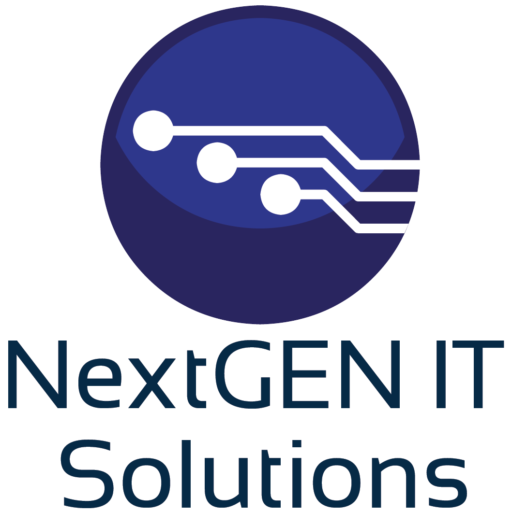Maximize Small Business Potential with Cloud Computing, AI, and E-commerce

Navigating the ever-evolving tech landscape can be perplexing for small businesses. The choices they make in this realm are pivotal, as they must opt for strategies that promise the most substantial returns. In this article, we will not only explore five prominent small business tech trends but also elucidate their potential to steer your business towards success in an increasingly competitive market.
1st Cloud Computing: Expanding Possibilities Cloud computing has emerged as a transformative force for businesses of all sizes, with small businesses reaping substantial benefits. In fact, a remarkable 82% of small to medium-sized businesses have reported reduced costs after embracing cloud-based tools.
The cloud offers a plethora of advantages, ranging from cost-effectiveness and scalability for data storage to enhanced software access and collaboration capabilities. By migrating to the cloud, small businesses can reduce their reliance on on-premises infrastructure, leading to cost savings and improved flexibility.
Moreover, cloud-based tools and platforms facilitate remote work, fostering collaboration and boosting productivity. Working in the cloud provides real-time access to data and applications from anywhere, enabling small businesses to make swift, informed decisions and respond nimbly to market fluctuations.
2nd Artificial Intelligence: Automating Efficiency Artificial Intelligence (AI) has ushered in a paradigm shift in the way businesses operate. In the current year alone, AI, exemplified by technologies like ChatGPT, has revolutionized numerous business applications. The potential benefits of AI for small businesses cannot be overstated.
AI-powered tools and algorithms have the capacity to automate routine tasks such as data entry, customer service, and inventory management, freeing up valuable employee time for more strategic endeavors.
Consider chatbots, which enable small businesses to provide round-the-clock customer support without the need for additional staff or overtime expenses. AI also empowers businesses to extract actionable insights from vast datasets, optimizing processes, personalizing marketing strategies, and enhancing customer experiences.
The adoption of AI technologies can confer a competitive edge upon small businesses by amplifying efficiency, curtailing costs, and elevating decision-making capabilities.
3rd E-commerce and Mobile Commerce: Expanding Reach The ascent of e-commerce and mobile commerce has opened new vistas for small businesses, granting them access to a global customer base. Through websites and mobile apps, companies can engage in commerce anytime, anywhere.
Setting up secure payment gateways and conducting online transactions has never been more accessible. Plug-and-play e-commerce solutions create seamless user experiences, cultivating trust and nurturing repeat business.
Businesses can now gain profound insights into customer preferences through data analytics, thereby optimizing inventory management and crafting personalized marketing campaigns. By embracing e-commerce and mobile commerce, small businesses can rapidly expand their reach beyond geographical confines and tap into fresh markets, catalyzing growth opportunities.
4th Data Security: Safeguarding Trust In an era marked by an escalating reliance on digital technologies, data security assumes paramount importance for small businesses. Contrary to popular belief, small businesses are just as susceptible to cyber threats as their larger counterparts, making stringent data security measures essential.
Startlingly, 46% of all data breaches impact businesses with fewer than 1,000 employees. Robust cybersecurity practices, including encryption, multi-factor authentication, regular data backups, endpoint protection, identity and access management, and advanced threat protection, must be implemented.
Proactive risk management strategies encompass staying attuned to emerging threats and investing in comprehensive employee training. Prioritizing data security not only protects sensitive information but also instills trust and confidence in customers, fostering long-term loyalty and a favorable brand reputation.
5th Automation and Workflow Integration: Streamlining Operations The automation of business processes, coupled with workflow integration, can yield significant operational efficiencies, resulting in time and cost savings for small businesses. Automation eradicates repetitive manual tasks, minimizes human errors, and augments overall efficiency.
Consider the integration of diverse systems and applications, such as customer relationship management (CRM), project management, and accounting software. Such integration breaks down silos, ensuring seamless information flow across different departments.
This integration not only enables better coordination and fosters collaboration but also optimizes resource allocation, improves productivity, and enhances customer satisfaction. Small businesses that harness automation and workflow integration gain a competitive advantage by operating more efficiently and delivering superior experiences to their customers.
Take an Important Step Toward Digital Growth In today’s digital era, small businesses have an array of tech tools and trends at their disposal. However, navigating this landscape requires guidance to make informed decisions aligned with their business goals.
While embracing cloud computing, AI, e-commerce, data security, and automation can be transformative, small businesses need a clear and affordable path to stay competitive. We can serve as your trusted guide on the journey of digital transformation.
Feel free to reach out today to schedule a conversation about tech solutions that can fuel your business’s growth and ensure its success in an ever-competitive market.



